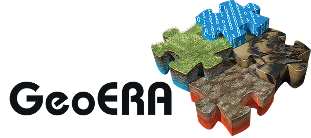G. Goetzl, 5 August 2021
On May 10th 2021, GeoERA MUSE organized a webinar in cooperation with the EU Horizon 2020 project GEOCOND on shallow geothermal resource mapping. Mapping shallow geothermal resources is an important but still challenging exercise when it comes to spatial resolution and adaptability of information provided to end-users. Policy makers prefer large-scale maps, which deliver information in an easily digestible format, anticipated by non-geoscientists as well. Energy planners need to have resource maps translating geoscientific parameters into technical ones. This has partly been achieved for single installations (e.g. borehole heat exchangers – BHE) at typical operational schemes for single buildings. However, appropriate mapping workflows are still lacking when it comes to large scale BHE fields operating at a combined heating and cooling mode.
The webinar consisted of two presentations on mapping followed by a joint panel discussion. On behalf of GEOCOND, Adela Ramos Escudero (University of Cartagena) and Burkhard Sanner (UbeG GbR) presented pan-European maps on geoscientific parameters relevant for designing Borehole Heat Exchangers (BHEs), such as thermal conductivity of the subsurface and annual ground temperature. On behalf of the GeoERA MUSE team, Martin Fuchsluger and Cornelia Steiner (both Geological Survey of Austria) presented the outcomes of an Austrian resource mapping study (project “Green Energy Lab – Spatial Energy Planning”), which based on the application of pre-existing Python based script (pygfunction) that was applied and modified in order to use g-functions for semi-analytic calculations for different BHE patterns and operational modes.
The webinar was attended by 40 participants from more than 20 different countries. For the summary of the webinar please visit the following link. The recording of the webinar can be found at the GeoERA MUSE YouTube channel: https://youtu.be/okN065GKWzM.
About GEOCOND
The GEOCOND project operated from May 2017 to February 2021 with the main objective to develop new and enhanced materials for BHE pipes and grout. Through a cooperation of material scientists, industry and shallow geothermal specialists, substantial improvements in both fields have been made, and the efficiency gains made possible by the advanced materials have been confirmed in a test field and some full-size installations. Mapping on a European scale was key to define the optimum target values for the new materials, and examples of regional mapping in Spain contribute to site design support. GEOCOND was supported by the European Union’s Horizon 2020 research and innovation programme under grant agreement No 727583.
For more information on GEOCOND please visit https://geocond-project.eu/.
Impressions from the webinar


Other MUSE Posts
- MUSE pilot area activities – RESULTS – #8 Glasgow
- MUSE pilot area activities – RESULTS – #7 Cardiff
- MUSE pilot area activities – RESULTS – #6 Zagreb
- MUSE pilot area activities – RESULTS – #5 Girona
- MUSE pilot area activities – RESULTS – #4 Aarhus
- MUSE pilot area activities – RESULTS – #3 Zaragoza
- Interview with our MUSE team member from Croatia
- New MUSE leaflet about shallow geothermal energy published
- MUSE pilot area activities – RESULTS – #2 Linköping
- MUSE pilot area activities – RESULTS – #1 Ljubljana
- Brand-new MUSE results: Fact sheets on shallow geothermal energy concepts
- Explore the new MUSE YouTube channel
- MUSE co-organized the Shallow Geothermal Days 2020
- MUSE – Monitoring Closed-loop systems and Open-loop systems
- MUSE – Geothermal heat pumps, a highly dynamic market in Europe!
- MUSE and the underground urban heat island effect
- MUSE – Open-loop systems requirements & advantages
- MUSE – Web-based information systems for shallow geothermal energy
- MUSE – Closed-loop systems requirements & advantages
- MUSE results published in Energy Policy
- MUSE – Differences between deep and shallow geothermal energy
- Legal framework, procedures and policies of shallow geothermal energy use in the EU and MUSE partner countries
- BBC article about MUSE activities in Cardiff
- Pilot area activities – #14 Assessment of shallow geothermal energy resources in Warsaw agglomeration, Poland
- Pilot area activities – #13 Geophysical survey and groundwater monitoring in Brussels, Belgium
- MUSE at “EGU2020: Sharing Geoscience Online” – Free online geoscience conference
- Pilot area activities – #12 Thermal groundwater use in the urbanized area of Zagreb, Croatia
